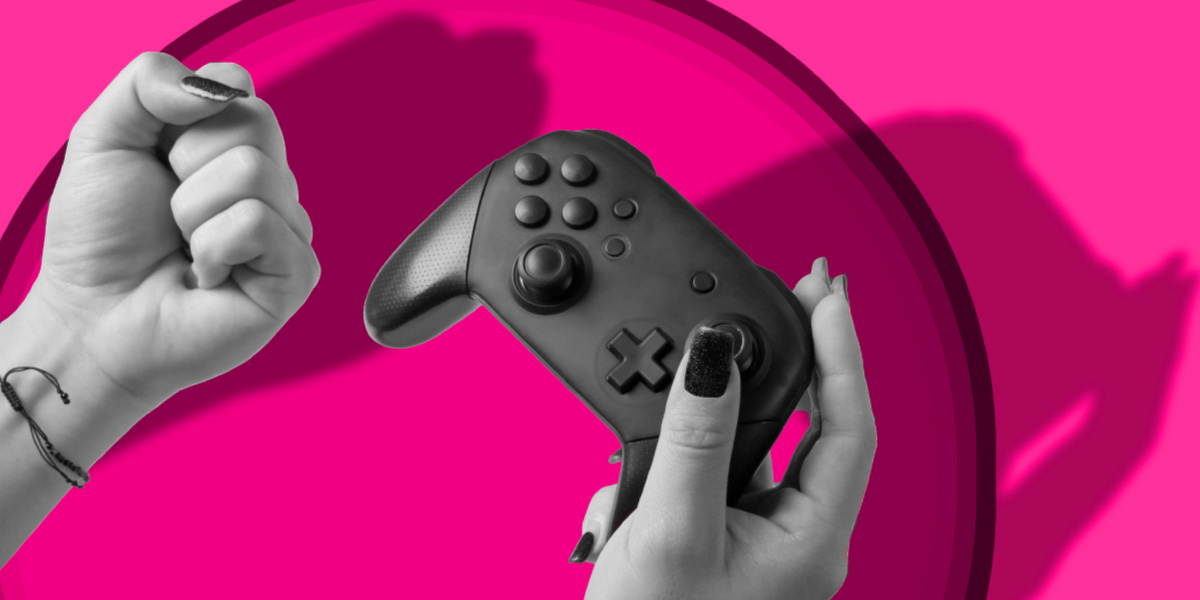
March 21, 2025
The Equalizers
Women Transforming Esports From The Inside
Meet the executives and innovators breaking the industry’s longest-running bug—and building a more profitable future
By Greg Smith
March 21, 2025
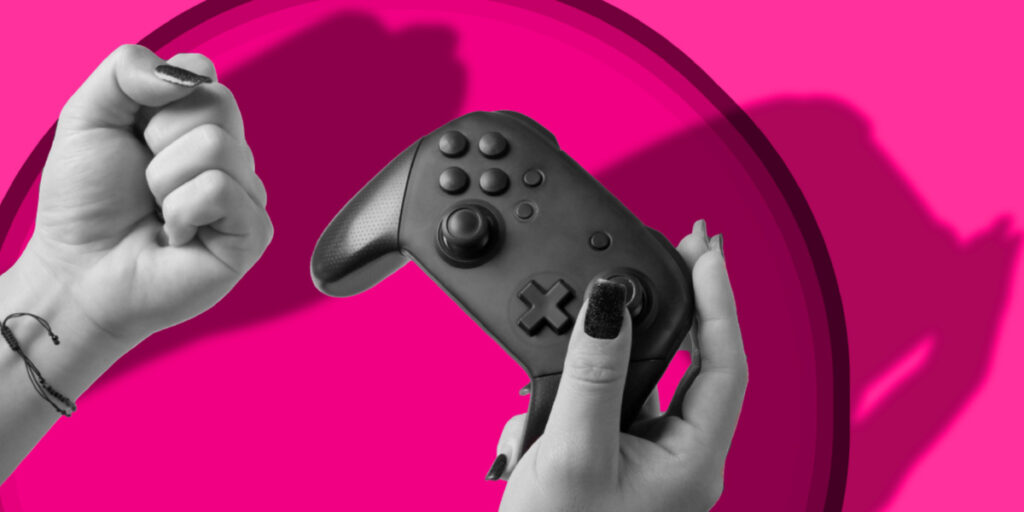
Forget everything you thought you knew about esports leadership. The industry that grew from LAN parties to billion-dollar valuations is experiencing its most significant evolution yet—and women are at the forefront of this transformation.
The stats are clear: esports is projected to hit $4.8B in revenue in 2025. What’s changing isn’t just the money but who’s shaping the industry’s future. Women are no longer peripheral characters in gaming’s story; they’re defining the next generation of the industry as CEOs, competitive players, marketing leaders, content creators, and strategic innovators.
The outdated narrative (“Where are all the women?”) has evolved into something far more compelling: How are diverse leaders transforming the business of play? The answer involves building upon existing foundations to create something more sophisticated and inclusive.
The industry’s new architects are bringing fresh perspectives through three essential components: representation that reflects gaming’s diverse audience, opportunity that creates multiple paths to leadership, and endorsement that amplifies innovation across the ecosystem.
In this feature, we spotlight the pioneers who are enriching esports from the inside out. Through conversations with these visionaries, we discover how they’re evolving competitive frameworks, reinventing sponsorship models, and proving that inclusive strategies aren’t just equitable—they’re smart business. For these leaders, success isn’t about pink jerseys—it’s about creating jerseys that fit everyone who wants to play.
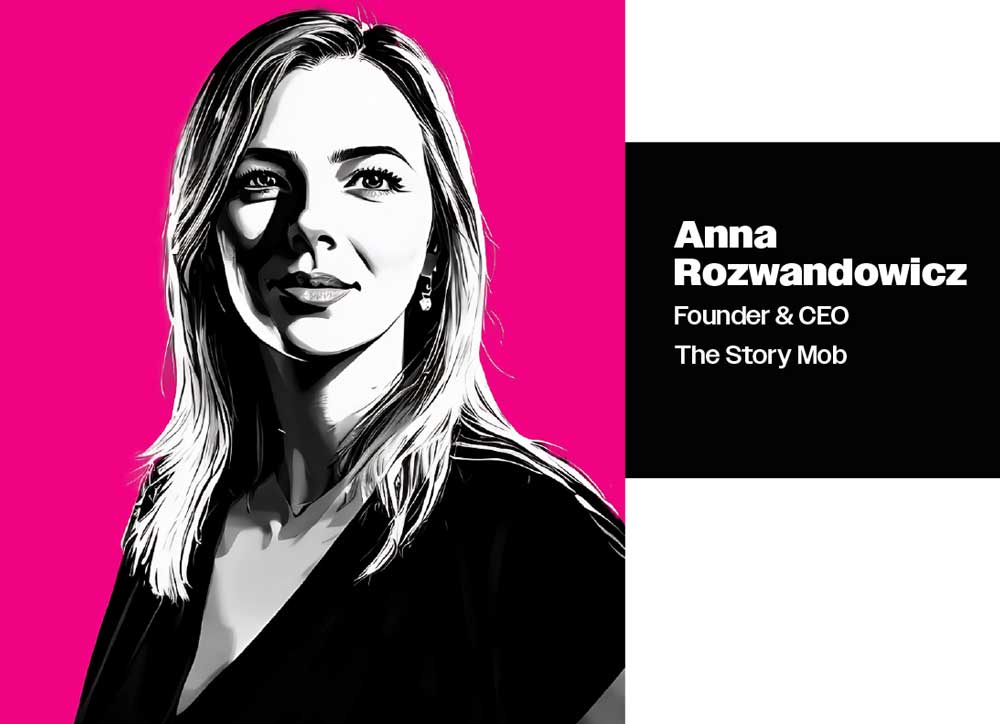 How has the narrative around women in esports evolved during your time in the industry, and what communications strategies have proven most effective?
How has the narrative around women in esports evolved during your time in the industry, and what communications strategies have proven most effective?
When I first started, the narrative was often about the lack of women, or focused on novelty. Now, we’re seeing a shift toward celebrating the incredible talent and achievements of women in esports - many of them not just on-air talent but also athletes, founders and innovators. The most effective communication strategies have been those that amplify these stories authentically. We’ve moved away from tokenism and towards highlighting genuine skill, competitive spirit, and the community that supports women in gaming. Showcasing role models, creating platforms for women’s voices, and challenging stereotypical portrayals have been crucial. Driving diversity in esports and gaming, especially at the leadership level, will be about the three things I always considered crucial for us: representation, opportunity, and endorsement. This concept should be woven into all aspects of communicating about women in esports.
From your communications expertise, how can organizations effectively articulate the business case for women’s esports to investors, sponsors, and other stakeholders?
It’s about demonstrating the untapped potential. When we founded The Story Mob, only 2,2% of VC funding went to female founders and CEOs - so it was very reassuring to see that our lead investor, BITKRAFT, saw the potential we believed we had. For all other stakeholders, we need to present data that shows the growing female audience, the rising viewership of women’s esports events, and the increasing engagement with female streamers and content creators. It’s also vital to highlight the unique opportunities for brands to connect with a diverse and loyal audience. We need to frame it not just as a ‘good cause’ but as a smart business move. After all, what’s the point of excluding half of the world’s population from your target audience? Show the growth, the engagement, and the clear ROI.
What role does authentic storytelling play in building sustainable women’s esports initiatives and connecting with audiences?
Authenticity is everything. Audiences, especially in gaming, can spot inauthenticity a mile away. Storytelling that highlights the real experiences, the challenges, and the triumphs of women in esports resonates deeply. It’s about showing the human side of competition, passion, and dedication. We need to move beyond just showcasing wins and losses and delve into the personal journeys, the communities built, and the impact these initiatives have. Authentic storytelling builds trust, fosters connection, and creates a sense of belonging.
Based on your experience with both endemic and non-endemic brands, what messaging approaches have been most successful in attracting sponsors to women’s esports?
For endemic brands, it’s about aligning with the values of the women’s esports community and demonstrating a genuine commitment to supporting its growth. They need to show they’re not just ‘checking a box.’ For non-endemic brands, the focus should be on the unique opportunity to reach a highly engaged and diverse audience. We’ve seen success with messaging that emphasizes the shared values of empowerment, inclusivity, and breaking barriers. It’s about showing how partnering with women’s esports can enhance their brand image and create meaningful connections with a new demographic. And it boils down to this: don’t sell me a pink jersey, sell me a jersey that fits.
Looking forward, how do you see the communication strategy around women’s esports evolving as the sector matures?
As the sector matures, we’ll see a greater emphasis on professionalization and standardization. Communication strategies will need to reflect this accordingly. However, I believe that human interest stories will still be the type of stories that will continue to drive interest in esports for women worldwide - seeing yourself reflected on the screen in a relatable protagonist is still a very powerful thing. We’ll also see a shift towards more data-driven storytelling, using analytics to demonstrate the impact and ROI of women’s esports initiatives. We’ll see more focus on individual athlete branding, similar to traditional sports. And, of course, the conversation will continue to evolve towards greater inclusivity and intersectionality, reflecting the diverse experiences of women in gaming.
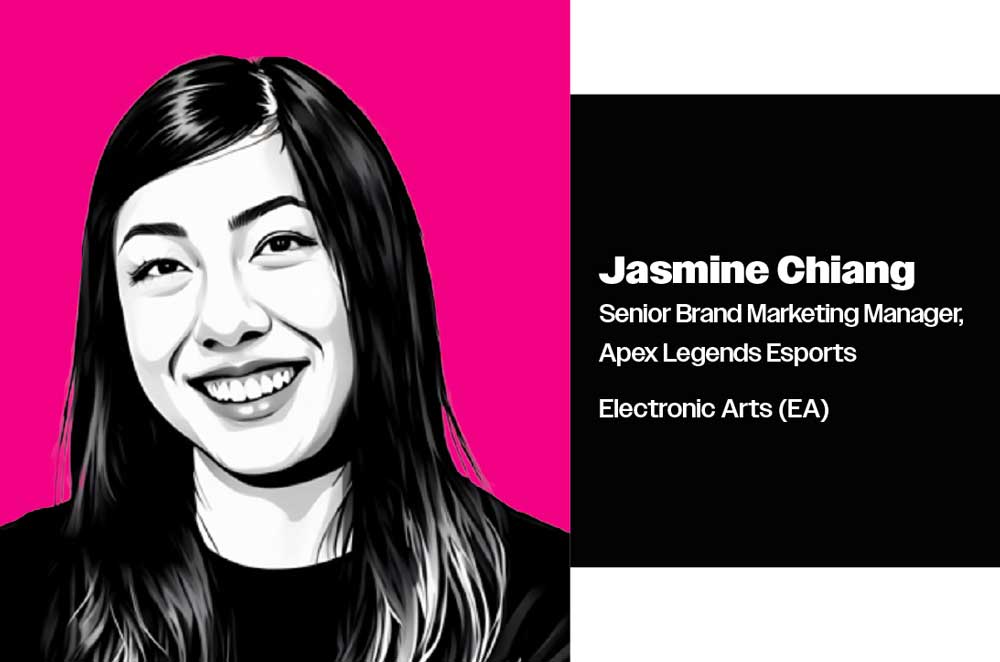
Could you share your journey into gaming and esports marketing? What challenges did you face as a woman in this space, and how did you overcome them?
My journey into gaming and esports marketing was a natural progression of my passion and hobbies growing up. I’ve always been a gamer, and when I started my first job at Lenovo as a marketing associate, I was determined to meet just about every person at the company with “gaming” in their title. I must have bought at least a dozen cups of coffee during my lunch breaks where I’d schedule informal chats with various leaders in Lenovo’s gaming division to learn more about the ecosystem.
After a few fruitful conversations, I started working on small projects for the gaming team after hours, which eventually led me to my first gaming role. As Lenovo’s new Global Marketing Manager, I oversaw the company’s gaming and esports strategy, including executing partnerships with brands, creators, and tournament organizers. One of my favorite partners at the time was Apex Legends, since I was a huge fan of the game. When the opportunity arose to join the Apex Legends esports marketing team in 2023, it was a no brainer.
As a gamer and a marketing professional, I’ve certainly encountered a number of challenges and opportunities as a woman in the space. By staying true to my passion, delivering results, and building strong relationships, I’ve been able to overcome those hurdles. More importantly, I’m fortunate to have strong allies and mentors who have championed my growth throughout my career.
Throughout your career in gaming and esports marketing, how have you seen women’s participation evolve?
Since I first stepped into this space, I’ve seen firsthand more women competing at high levels, creating content, and taking on influential roles at top organizations. Throughout my career, I’ve been surrounded by inspiring women. Working with industry veterans like our Head of Esports Monica Dinsmore, and collaborating with women players, casters, and creators has given me a rolodex of peers and mentors who I look up to. From my personal experience, this is helping young professionals feel empowered to apply for roles, speak their minds, and learn from each other.
I’m also fortunate to work on a game title that’s particularly inclusive, and that representation impacts opportunities for women players, too. Apex Legends features an incredibly inclusive cast of Legends that reflect the backgrounds of our team, our community, and our players – and that’s a badge I wear with pride. Players want characters that share experiences with them, and that diversity is what inspires change.
What advice would you give to women specifically looking to build careers in esports marketing or content creation?
One piece of advice I’d give to any woman in gaming is: Don’t feel the need to hide the fact that you’re a gamer. I love gaming just as much now as I did growing up playing the Nintendo 64, and that passion has unlocked so many opportunities for me, personally and professionally.
Beyond that, it’s incredibly important to gain a deep understanding of the gaming community you’re working with – play the game, immerse yourself in the culture, understand the nuances, and learn what resonates with players and fans.
Additionally, make sure to build and maintain a strong network. Attend industry events, connect with professionals on social media, and seek out mentorship opportunities. Not only can networking open doors to new opportunities, but it can also provide a new perspective.
From your industry perspective, what are the most significant unmet needs for women in competitive gaming today?
Many gamers have experienced some form of toxicity playing their favorite game online. That’s oftentimes disproportionately felt by women, and it remains one of the biggest barriers to competing professionally. While there’s no industry-wide solution, we can continue to foster a culture of inclusivity and prioritize creating safe spaces for women to compete and connect with each other.
Despite these hurdles, we’re fortunate to have thriving women in our space who continue to spotlight opportunities for historically marginalized gamers. Whether it’s competitors like TiltedWinnie or streamers like TiffaJessi, the Apex Legends community in particular is full of talented women who are pushing the envelope for competition and content creation. There’s undoubtedly a need for strong role models in the space to challenge the status quo.
I don’t see that slowing down any time soon, and I anticipate that even more women will continue to be inspired by the creators of today.
Looking ahead 3-5 years, how do you envision the pathways for women in gaming and esports evolving - both in competition and content creation?
In the next few years, I’m confident there will be more pathways for women in the space thanks to the inspiring group of role models I mentioned above. I’m hopeful that these women in Apex Legends and across the industry are laying the groundwork for a more inclusive and equitable future.
What marketing strategies have proven most effective for engaging female audiences in the battle royale genre, and how have these contributed to creating what players describe as a more inclusive Apex community?
The most effective strategy is creating authentic content that reflects the diverse experiences of women gamers. In Apex Legends, it’s about more than superficial representation – it’s about embracing the strength, complexity, and individuality of the women in the game. From Loba’s tactical precision to Catalyst’s cool control of a battlefield, the cast of Legends offers a character that every type of gamer can resonate with.
That’s captured in our marketing efforts, too. We consistently try to focus on our relatable character design and women creators who are the backbone of this community. Listening to feedback from our fans and lifting up positive voices have helped to foster a sense of belonging and that’s just one of the things that makes Apex Legends so great.
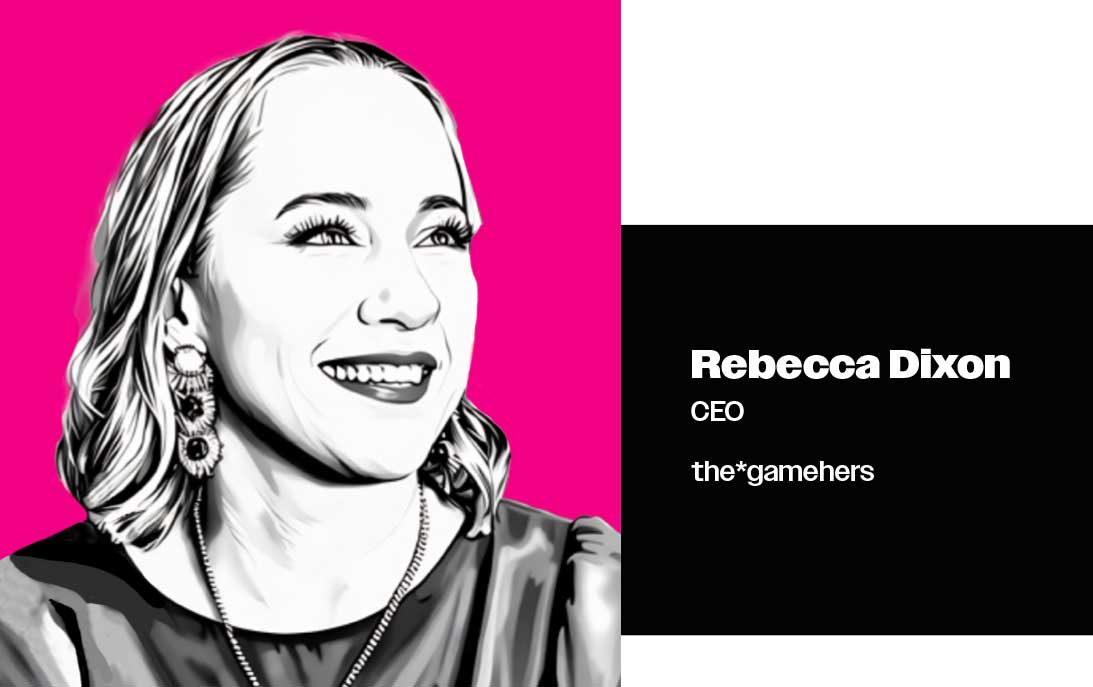
Could you share your journey into gaming and founding The*gameHers? What challenges did you face as a woman entrepreneur in this space, and how did you overcome them?
I didn’t come from a traditional gaming background, but I’ve always been passionate about community-building and media. My journey into gaming started when I saw a massive gap in the industry—there wasn’t a centralized, safe, and inclusive space dedicated to women gamers, whether they were casual players, industry professionals, or students. That’s what led to the founding of the*gamehers.
As a woman entrepreneur in gaming and tech, one of the biggest challenges was breaking into a space that has long been male-dominated. Whether it was securing funding or gaining credibility, there were moments when I had to push harder to make our vision a reality. I overcame this by surrounding myself with a strong network of allies, amplifying the voices of our community, and proving our value through data and engagement.
Since founding The*gameHers, how have you seen women’s participation in gaming evolve? What key market shifts have created new opportunities for organizations like yours?
Since we launched, I’ve seen a shift in how women are represented and included in gaming. There’s more awareness around diversity and inclusion, and brands are recognizing the purchasing power and influence of women gamers. There’s also been an increase in women-led gaming organizations and initiatives, which is encouraging.
One of the biggest market shifts has been the rise of content creation and social-driven gaming. Women are leading the charge on platforms like Twitch, YouTube, and TikTok, creating opportunities for brands, partnerships, and new business models. Esports is also expanding beyond just competitive play—there’s more emphasis on lifestyle, education, and professional development.
What advice would you give to women specifically looking to build careers on the business side of esports?
For women looking to build careers on the business side of gaming and esports, my biggest piece of advice is to network relentlessly and develop cross-disciplinary skills. The industry moves fast, and understanding marketing, partnerships, community management, and monetization strategies can set you apart.
Another key approach is to actively seek mentorship—there are more women in leadership positions now than ever before, and many are eager to uplift the next generation. Also, don’t wait for a traditional career path to emerge. If you have an idea, build something. The gaming industry thrives on innovation.
How has The*gameHers’ mission and business model evolved since you started?
When we first started the*gameHers, our primary focus was on creating safe digital spaces for women gamers. Over time, we realized the impact we could have across different segments—whether it was supporting women in the gaming industry, parents of young gamers, or college students. That’s why we expanded our platform to include career development resources, events, and partnerships with universities and gaming organizations.
One of the biggest pivots that worked well for us was leaning into our community-driven approach. Instead of dictating what our audience needed, we listened and built features, programs, and events based on real feedback.
Looking ahead 3-5 years, how do you envision the pathways for women in gaming and esports evolving - both in competition and content creation?
Over the next 3-5 years, I see massive growth in women-focused gaming initiatives, especially in content creation, collegiate esports, and leadership roles. More brands will be investing in inclusive gaming campaigns, and the talent pipeline for women in gaming will continue to strengthen.
Some of the most promising market segments include:
- Content creation & influencer marketing – Women are shaping gaming culture through streaming and social media.
- Collegiate & educational programs – More universities are integrating gaming into their curriculum.
- Esports & competitive opportunities – While still evolving, there’s potential for women’s leagues and co-ed tournaments.
- Web3 & gaming technology – The rise of new monetization models could empower more independent creators and entrepreneurs.
Ultimately, the future of gaming is more inclusive, and the*gamehers will continue to play a role in helping to shape that evolution.
What strategies have proven most effective for building sustainable communities for women in gaming, and how do you measure the impact of these communities?
The key to building a sustainable community is fostering engagement and trust. We’ve found that prioritizing authenticity, representation, and moderation is critical. Our most effective strategies have been:
- Creating both online and offline spaces where women feel heard and valued.
- Partnering with brands that genuinely support women in gaming.
- Providing mentorship and career opportunities to help members grow.
To measure impact, we look at engagement metrics, retention rates, and direct feedback from our members. But beyond the numbers, it’s about seeing real stories of women finding opportunities, friendships, and confidence in gaming..
Categorized in: EsportsNext Magazine



